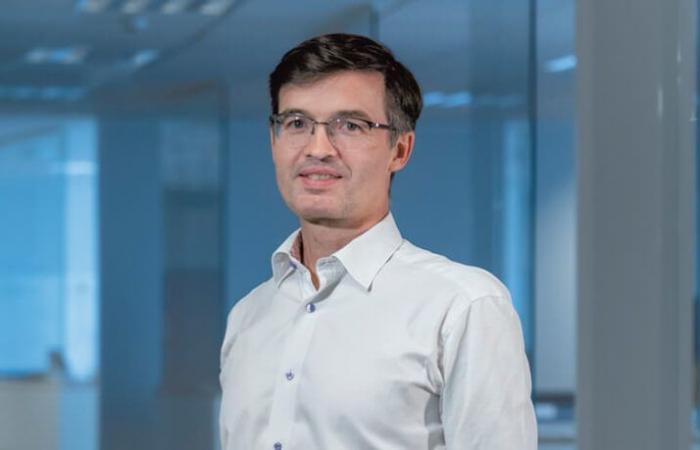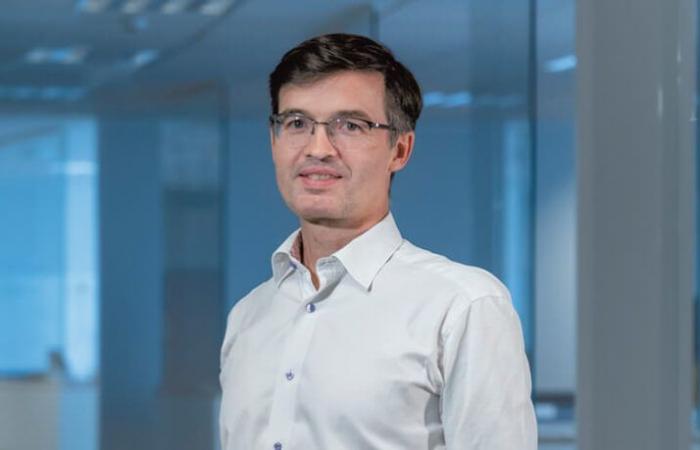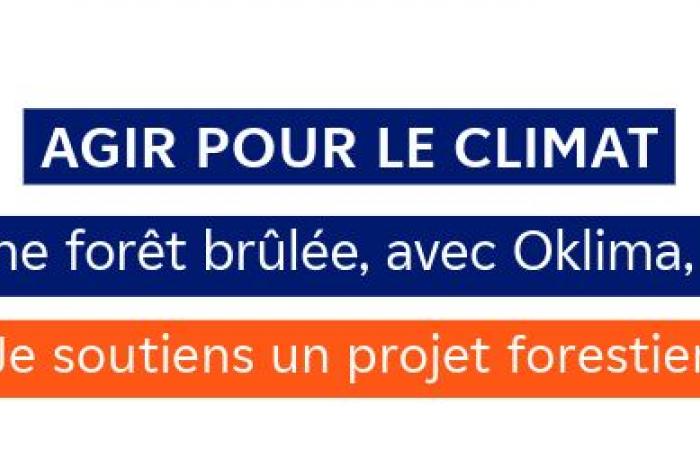The CEO explains how Oklima supports companies in their voluntary contribution to global carbon neutrality
Thomas Bladier, CEO de Oklima – © Andrew McLeish/EDF
Edouard Laugier,
in collaboration with Oklima
What characterizes the carbon contribution market today?
The carbon contribution market corresponds to companies’ growing awareness of climate issues, but also more broadly environmental issues, such as the collapse of biodiversity or the management of water resources. In 2023 in France, the turnover of the carbon contribution market [ensemble des crédits vendus par des opérateurs] is around 250 million euros, according to the latest inventory of the Info Compensation Carbone platform. The activity is relatively modest but it is seeing growing interest from companies as they mature their decarbonization policy. They are primarily interested in symbolic projects, to raise awareness among their internal stakeholders, such as employees, and external ones, typically their clients. What is important is to choose contributions that complement what the company already does within its own scope.


Carbon credit, carbon offset and now carbon contribution. Can you help us see it a little more clearly?
Offsetting amounts to considering that everything is equal, a bit like a magic eraser that allows emissions to be removed from a carbon footprint. Concretely, this means, for example, considering that planting trees allows you to continue heating with gas or fuel oil. The problem with this approach is that we only have one planet, so there isn’t enough room to offset all corporate emissions. The latter must therefore reduce their own emissions.
“Companies must account for the impact of these ‘carbon contribution’ actions separately from their own greenhouse gas emissions.”
And they must also finance projects beneficial for the climate and biodiversity, and which could not be implemented without their contribution. They must account for the impact of these “carbon contribution” actions separately from their own greenhouse gas emissions. Finally, as for the carbon credit, it is above all a measuring tool.
Oklima presents itself as the subsidiary of the EDF group specializing in quality carbon contribution. What does this mean?
Oklima develops projects that help slow down climate change, and support the maintenance of biodiversity or the preservation of water. We offer committed companies the opportunity to finance these projects. We rely on independent labels verified by third parties which guarantee truly additional actions. Each of our French projects is thus verified by State services which ensure their impact. For example, we are not going to offer to a company to finance the replanting of trees in the forest on a plot naturally intended to accommodate trees. This is not a contribution because in reality this action would have been carried out even without the company’s funding.
Very concretely, how do you support companies wishing to support climate action?
The carbon or climate contribution must really meet a company commitment. We observe a diversity of expectations. Some seek the most local impact possible, close to their production or sales site. Others, more international, wish to demonstrate their solidarity with the populations of the countries where they are established. For each type of request, we have an advisory approach in choosing the type of project. We carry out in-depth investigations to ensure that they comply with the company’s challenges. We are also developing monitoring activities which may result in visits to funded sites. We develop projects ourselves in France and call on partners for projects abroad.
“We develop the projects ourselves in France and call on partners abroad.”
What are the key factors for a successful corporate decarbonization strategy?
First point: the decarbonization strategy must be based on different pillars. First, the company must have a carbon footprint, have an ambitious plan to reduce its own emissions and carry out contribution actions in order to take action further. Second key to a successful corporate decarbonization strategy: the choice of projects consistent with the company’s values and positioning.
What are Oklima’s ambitions and challenges for the years to come?
We want to support all forest owners and farmers in this transition. Each farmer must find decarbonization levers that are consistent with the deployment of their farm. Finally, we aim to become a player in the decarbonization of businesses and the restoration of ecosystems at the European level within 3-5 years.








